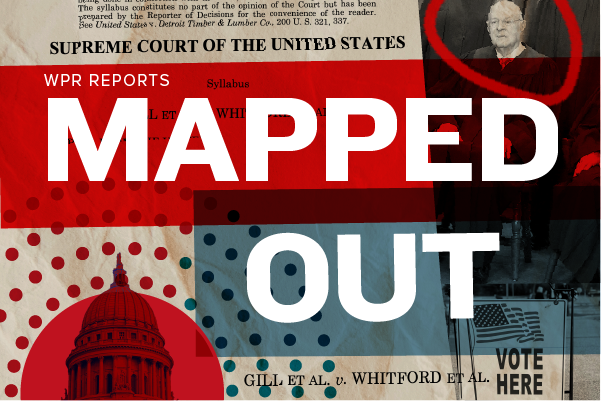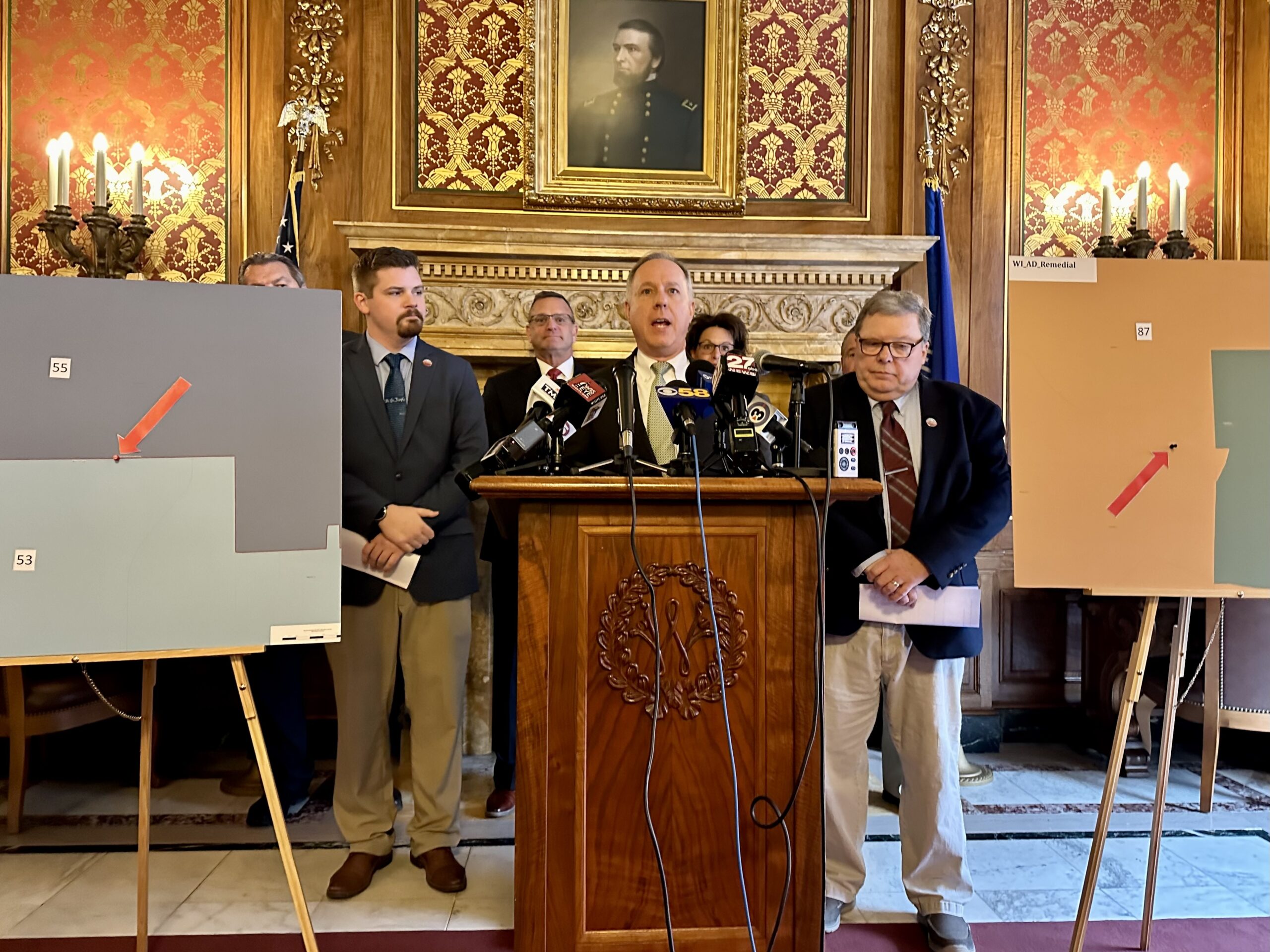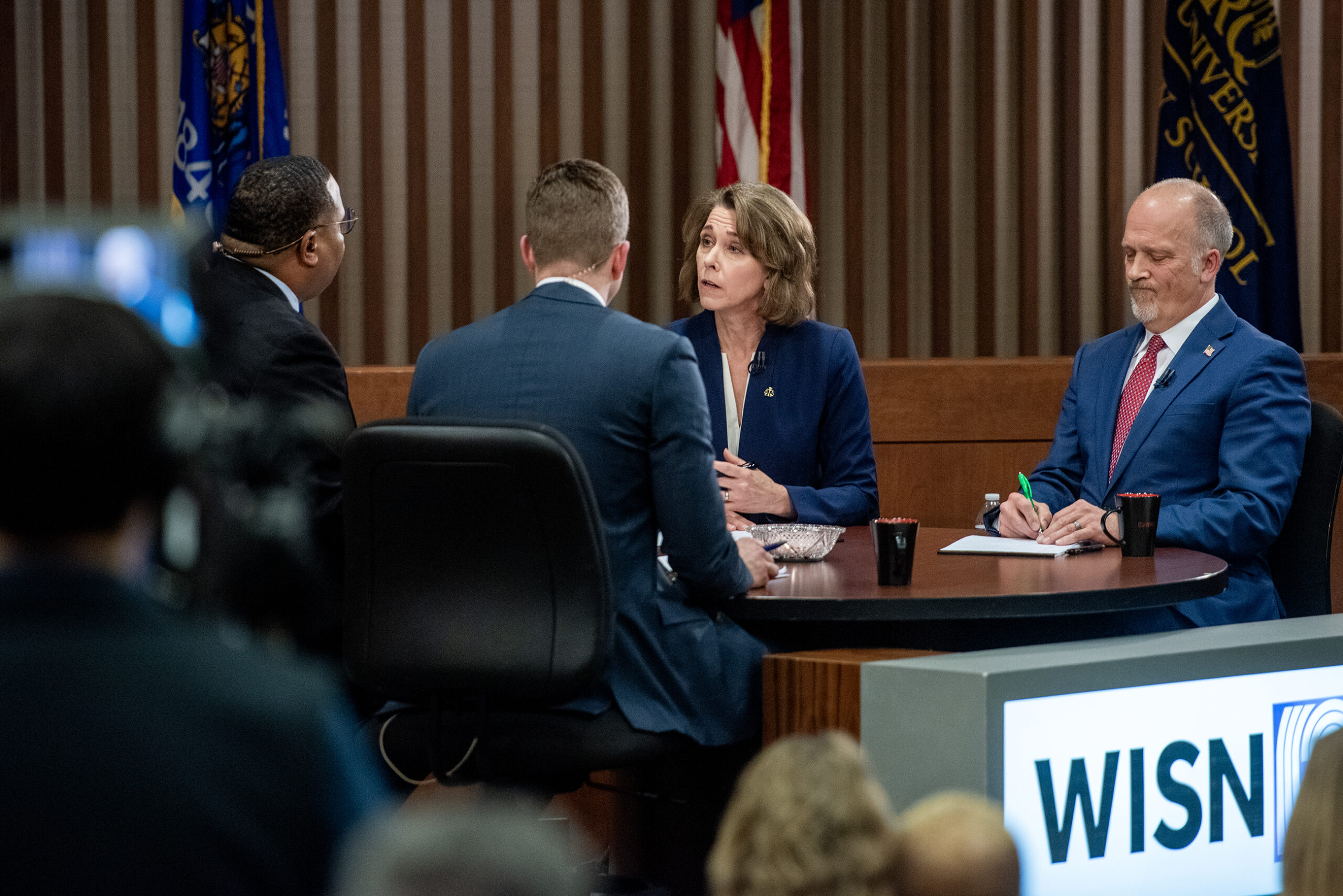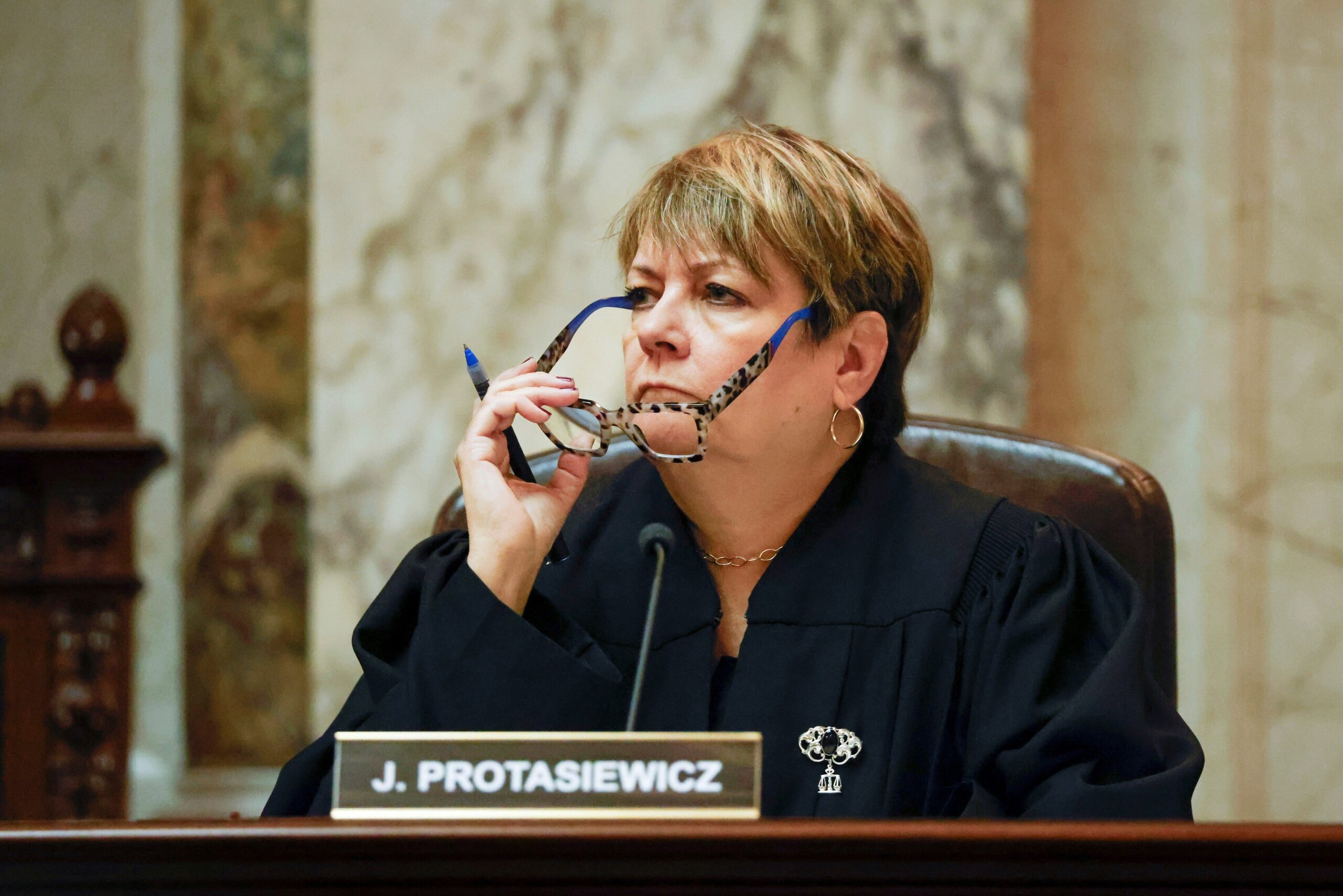The Wisconsin Assembly passed new legislative voting maps Wednesday that Republicans say would resolve a redistricting dispute nearing its final stages before the Wisconsin Supreme Court.
But almost immediately, Democratic Gov. Tony Evers said he would veto the plan, which would leave the dispute in the court’s hands.
Republicans said the maps they passed are based on a plan submitted to the court by Evers, with a handful of changes. The same maps have already been approved by Senate Republicans.
During a press conference ahead of the Wednesday floor session, Assembly Speaker Robin Vos, R-Rochester, said Republicans are making “miniscule changes to un-gerrymander” Evers’ maps. In particular, Vos said those changes would reduce the number of GOP incumbents who had been drawn into districts held by other Republicans, which he called evidence of Evers’ partisanship.
Vos was joined by a group of fellow GOP state representatives who say they would be drawn out of their districts under Evers’ original map proposals.
Stay informed on the latest news
Sign up for WPR’s email newsletter.
“We want to make sure it’s really clear the men and women behind me are all planning to run for reelection, no matter how the maps attempt to gerrymander them out of giving the chance to run for reelection,” Vos said.
Vos said the Republican push to pass an amended version of the governor’s proposal is aimed at complying with the Supreme Court’s request that the Legislature pass new maps and not to get around a future ruling. If lawmakers and Evers cannot agree, the court said it “will proceed toward adopting remedial maps” after declaring current GOP-drawn districts unconstitutional in December.
All Democrats voted against the plan, which passed on a vote of 63-35.
In an interview posted to social media shortly after the vote, Evers said the plan was a nonstarter with him.
“I won’t sign it,” Evers said. “The only one that I’ll sign is my maps.”
The Assembly vote comes just days before consultants hired by the Supreme Court’s liberal majority are due to issue a report scoring several legislative district map proposals submitted to justices as part of an ongoing redistricting lawsuit filed last August. Those submissions included maps from a group of Democratic plaintiffs, the Republican-controlled Legislature, and notably, from Evers.
The court found the state’s current, Republican-drawn legislative maps are unconstitutional. Until this week, it was widely assumed justices would decide the new maps that would replace them.
That changed Tuesday, when Republican state Senators scheduled a surprise vote to pass a new redistricting plan that GOP leaders said was based on the map Evers submitted to the court. Assembly Republicans met privately to discuss the maps Tuesday night and Wednesday morning.
Like the other maps submitted to the state Supreme Court, Evers’ redistricting plan would likely reduce the size of Republican majorities in the Legislature. GOP lawmakers currently hold a 22-11 majority in the Senate and a 64-35 majority in the Assembly.
An analysis of Evers’ maps by Marquette University Research Fellow John Johnson projected the governor’s plan could trim those GOP majorities to 17-16 in the Senate and 53-36 in the Assembly. While that would be a blow to the GOP, Vos has said he’s confident Republicans can win under the governor’s map. Evers’ map is also less favorable to Democrats than some other options presented to the court.
If Evers signed the maps, it could effectively put an end to the lawsuit pending before the state Supreme Court. But if all sides can’t agree, justices would likely have the final say.
Assembly vote comes a day after state Senate passed new map
On Tuesday, Republicans in the state Senate passed an amended version of the governor’s maps. Four GOP senators voted against that bill, with State Sen. Joan Ballweg, R-Markesan, criticizing Evers’ plan for moving more than 671,000 voters from even numbered senate districts to odd numbered districts. She said that means those voters wouldn’t be able to vote for a state senator until 2026 because of how senate elections are staggered under state law.
The Senate tweaks to Evers maps, Ballweg said, would move around 666,000 voters including some in her own district.
“These are people that I respect,” Ballweg said. “These are people that I have partnered with, and in many areas I feel that I need to speak up for them because they are the ones that are being drastically affected by what the governor’s maps do in disenfranchising the majority of members in the 14 Senate district.”
The Senate version of Evers’ maps passed by a vote of 17-4. Joining Ballweg and Democrats in voting against the plan were Sens. Julian Bradley, R-Franklin and Eric Wimberger, R-Green Bay, as well as Senate President Chris Kapenga, R-Delafield.
During the Assembly Republican press conference before Wednesday’s vote, GOP lawmakers who joined Vos argued that Evers’ map had deliberately drawn them out of the districts they currently represent.
Rep. Nate Gustafson, R-Fox Crossing, pulled out a 15-foot tape measure to illustrate his point, saying that’s how far away the new district lines would land from his home.
“So this is this is what we’re up against,” Gustafson told reporters.
He said he would still run in the new district if Evers’ plan is adopted.
But during a brief debate before Republicans passed the maps, Assembly Minority Leader Greta Neubauer, D-Racine, said Republicans answers to Evers’ map were unacceptable.
“The map in front of us was changed specifically to protect Republican incumbents,” Neubauer said. “This is wrong, and it puts politicians careers over the will of the people.”

Legislature’s votes come roughly a week before map experts to release report
The votes by the Legislature this week come roughly a week before the two experts hired by justices are set to release a summary of all six redistricting plans submitted to the court.
Johnson’s analysis of those maps found that under most of those plans, if the 2022 election were held using maps submitted to the court, Republican majorities in the Assembly and Senate would shrink but the GOP would still be expected to maintain control of both houses. The caveat, Johnson said, is that turnout in this year’s presidential election will be higher, which is likely to change the actual legislative outcomes under the various proposals.
In its December ruling striking down current GOP-drawn voting maps, the court’s liberal majority set criteria for new map submissions based on constitutional requirements that new voting districts be compact, roughly equal in population and have boundaries that physically connect. That last criteria, referred to as contiguity, was the basis for the court’s ruling declaring existing legislative maps unconstitutional.
Justices also said they would consider the partisan impact of the plans, writing in their majority opinion that they had a duty to avoid selecting remedial maps that advantage one political party over another.
Map proposals form all parties to the redistricting case, except those from the Legislature, followed the court’s criteria. Attorneys for the Legislature argued the only way for the Supreme Court to ensure political neutrality when choosing new maps “is to stay out of politics altogether.”
A brief filed by the Legislature on Jan. 22 argued map submissions from Democratic petitioners who filed the redistricting suit, Senate Democrats and Evers target dozens of Republican incumbents by paring them with other GOP lawmakers.
“In short, selecting a remedy designed to shrink Republican majorities, pair Republican incumbents, and disenfranchise likely Republican voters would confirm the case has been prejudged from the start,” the brief said.
The redistricting debate in Wisconsin has dominated state politics for the better part of a year. In that time, Republicans including Vos have floated the idea of impeaching liberal Justice Janet Protasiewicz for redistricting comments she made during her campaign against former conservative Justice Dan Kelly.
In October, Vos said impeachment was still on the table after Protasiewicz refused to recuse herself from the redistricting lawsuit. Vos has also hinted at appealing the state redistricting case to the U.S. Supreme Court.
For more on the history of redistricting in Wisconsin and how it impacts political power in the state, check out WPR’s investigative podcast series, “Mapped Out.”

Wisconsin Public Radio, © Copyright 2025, Board of Regents of the University of Wisconsin System and Wisconsin Educational Communications Board.





